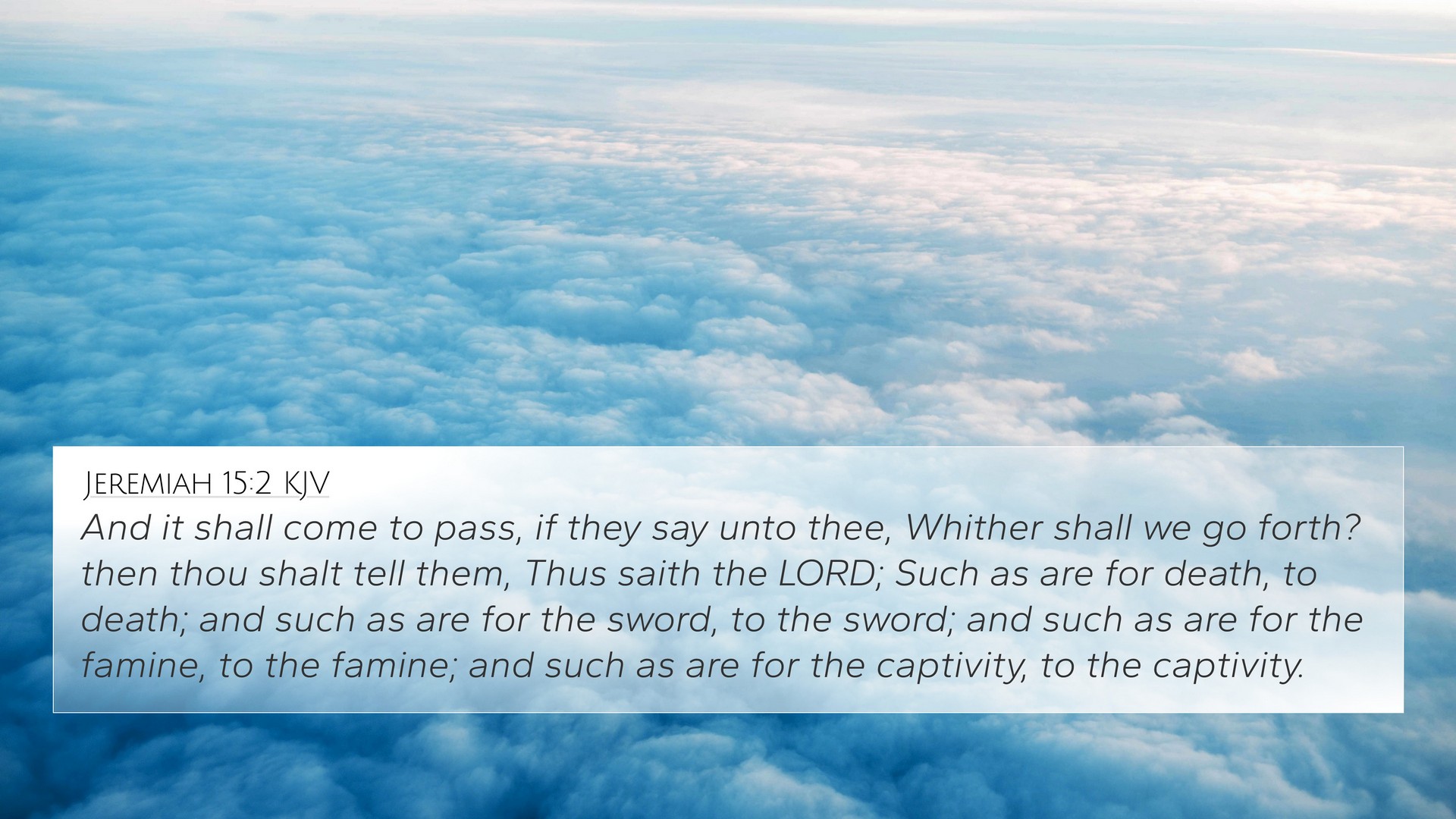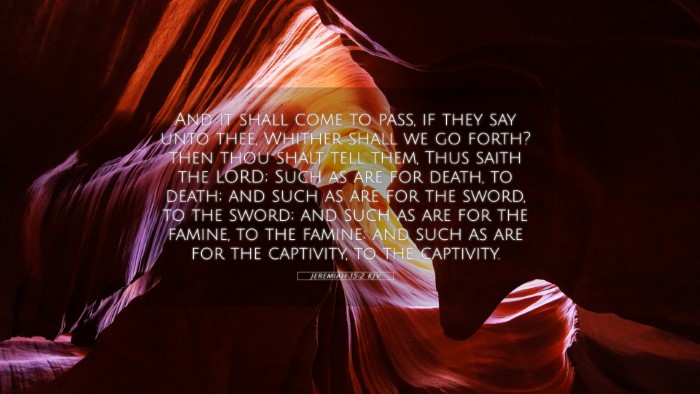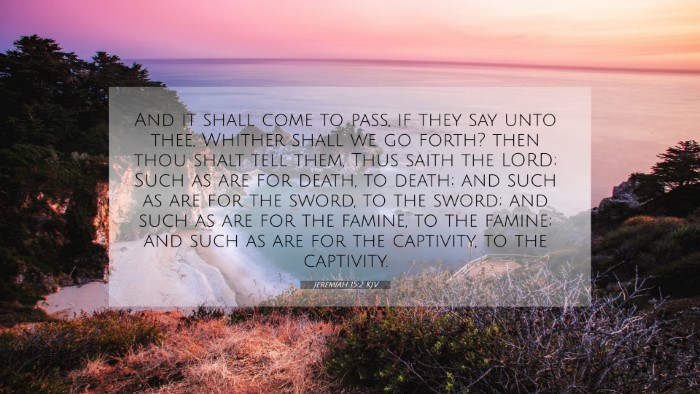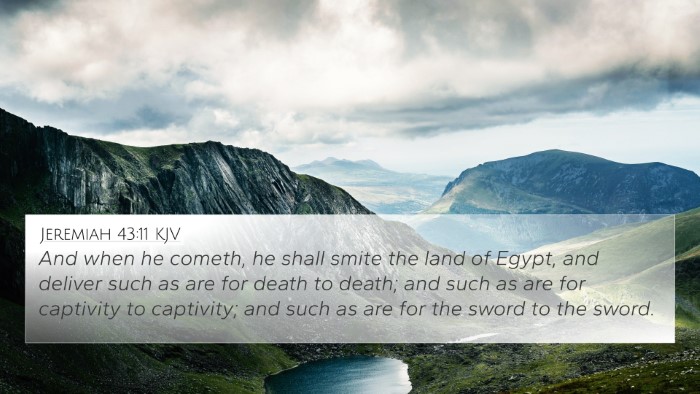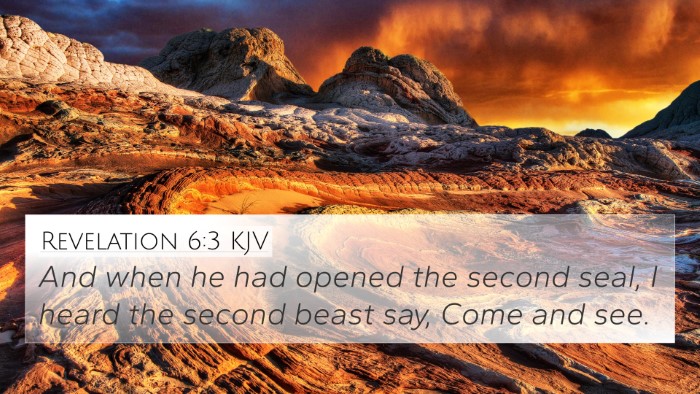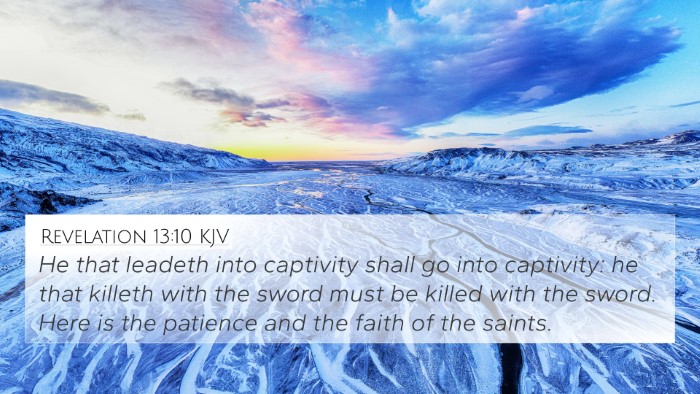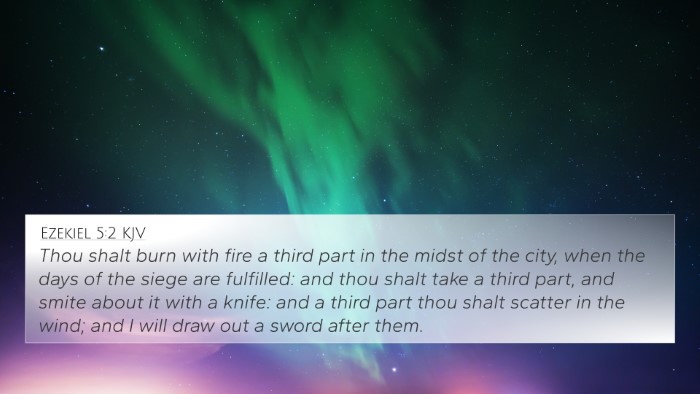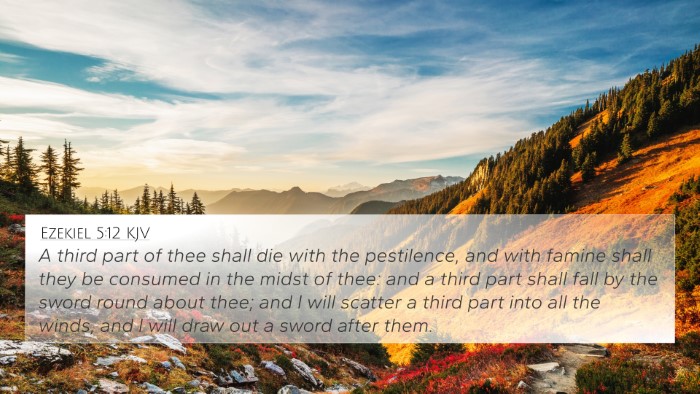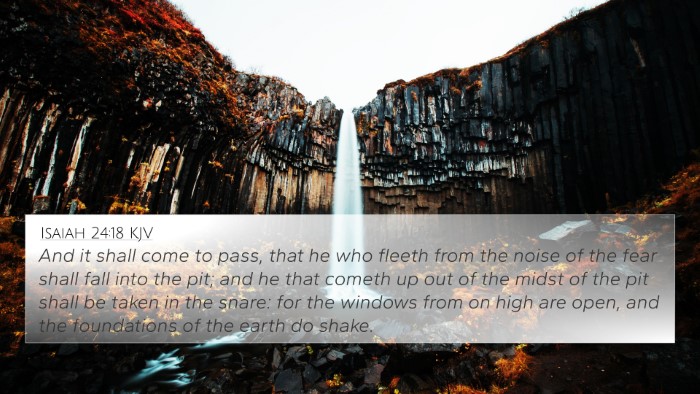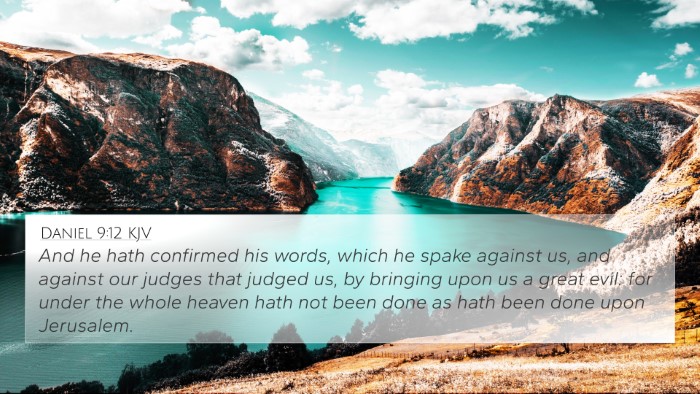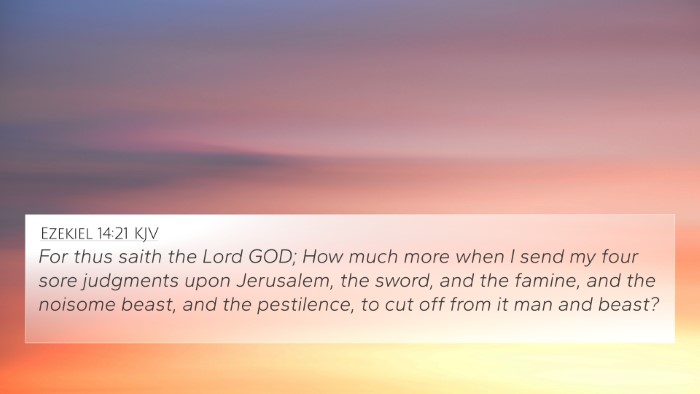Understanding Jeremiah 15:2
Jeremiah 15:2: "And it shall come to pass, if they say unto thee, Whither shall we go forth? Then thou shalt tell them, Thus saith the LORD; Such as are for death, to death; and such as are for the sword, to the sword; and such as are for the famine, to the famine; and such as are for the captivity, to the captivity."
Meaning and Interpretation
This verse serves as a poignant reminder of God's impending judgment upon the people of Judah. The prophet Jeremiah is instructed to communicate the dire consequences that await those who have turned away from God.
Insights from Public Domain Commentaries
The following insights have been drawn from respected biblical commentaries:
-
Matthew Henry:
Henry reflects on the distinction made between the various fates that await the unrepentant. He emphasizes the severity of divine judgment, showing that God's justice will manifest in different forms depending on the individual's sins.
-
Albert Barnes:
Barnes highlights that the categorization of different fates—death, sword, famine, and captivity—illustrates the comprehensive nature of God's judgment. Each represents the ultimate consequence of turning away from His covenant.
-
Adam Clarke:
Clarke elaborates on the symbolic meanings of each fate, suggesting that they are not merely physical outcomes but also represent spiritual states. For instance, captivity could symbolize being held as a prisoner of sin.
Bible Verse Cross-References
Jeremiah 15:2 connects to several other scripture passages that relate to judgment, accountability, and repentance:
- Jeremiah 14:12: “When they fast, I will not hear their cry; and when they offer burnt offering and an oblation, I will not accept them: but I will consume them by the sword, and by the famine, and by the pestilence.”
- Ezekiel 14:21: “For thus saith the Lord God; How much more when I send my four sore judgments upon Jerusalem, the sword, and the famine, and the noisome beast, and the pestilence, to cut off from it man and beast?”
- Matthew 10:28: “And fear not them which kill the body, but are not able to kill the soul: but rather fear him which is able to destroy both soul and body in hell.”
- Revelation 6:8: “And I looked, and behold a pale horse: and his name that sat on him was Death, and Hell followed with him. And power was given unto them over the fourth part of the earth, to kill with sword, and with hunger, and with death, and with the beasts of the earth.”
- Isaiah 65:12: “Therefore will I number you to the sword, and ye shall all bow down to the slaughter: because when I called, ye did not answer; when I spake, ye did not hear; but did evil before mine eyes, and did choose that wherein I delighted not.”
- Jeremiah 25:33: “And the slain of the Lord shall be at that day from one end of the earth, even unto the other end of the earth: they shall not be lamented, neither gathered, nor buried; they shall be dung upon the ground.”
- Lamentations 3:43: “Thou hast covered with anger, and persecuted us: thou hast slain, thou hast not pitied.”
- Hosea 4:9: “And there shall be, like people, like priest: and I will punish them for their ways, and reward them their doings.”
- 2 Thessalonians 1:9: “Who shall be punished with everlasting destruction from the presence of the Lord, and from the glory of his power.”
Connections between Bible Verses
Jeremiah 15:2 invites a comprehensive understanding of God's justice and righteousness. The following themes resonate as we link this verse with others:
- Judgment: The scriptural references above collectively underscore the seriousness of God’s judgment, as seen across various books of the Bible.
- Accountability: Each referenced verse reiterates that God holds His people accountable for turning away from Him, creating a strong thematic connection.
- Hope and Despair: The fates mentioned present a stark contrast, encouraging readers to reflect on the consequences of their spiritual choices.
Conclusion
Jeremiah 15:2 serves as a profound reminder of the truth that ignoring God leads to severe repercussions. By studying the connections between additional scripture, we deepen our understanding of divine justice and mercy.
Engage in Cross-Referencing
For those wishing to explore further, using tools like a Bible concordance or Bible cross-reference guide can provide clarity and deeper insights into scripture.
Bible Reference Resources
Utilizing comprehensive resources for cross-referencing and thematic analysis enables believers to navigate the rich landscape of biblical teachings effectively.
